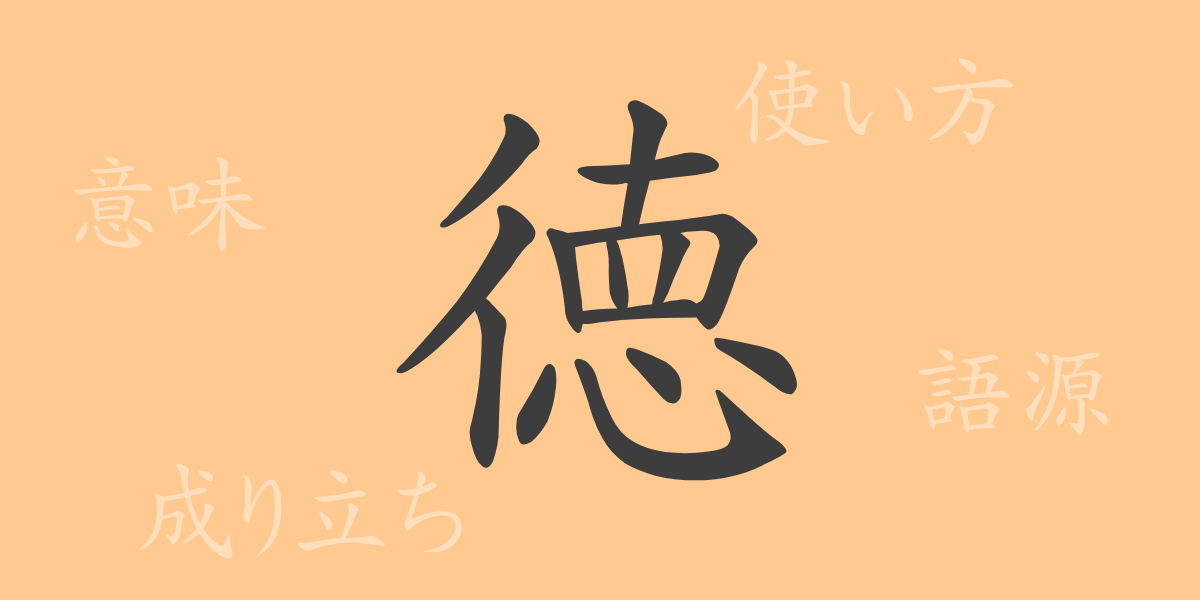In Japanese culture, the character ‘徳 (とく)’ symbolizes intrinsic human values and has been esteemed since ancient times. This article delves into the deep meanings hidden within this single Kanji, exploring how it is utilized in our lives and language.
Origins of ‘徳 (とく)’
The Kanji ‘徳’ originated from ancient China, initially representing a ‘person standing upright showing the heart’, symbolizing the highest moral qualities a person should possess under Confucian influence. This value system was adopted in Japan, where it became a measure of personal character.
Meaning and Usage of ‘徳 (とく)’
‘徳’ refers to morally correct behavior and qualities, or the intrinsic value and character gained through performing good deeds, such as acts of kindness, compassion, and sincerity. Commonly used in phrases like ‘accumulate virtue’ (徳を積む) and ‘a person of high virtue’ (徳が高い), it plays a significant role in daily communication.
Reading, Stroke Count, and Radical of ‘徳 (とく)’
The Kanji ‘徳’ is packed with various layers of information:
- Reading: On’yomi ‘トク’, no specific Kun’yomi
- Stroke Count: 14 strokes
- Radical: Heart (りっしんべん)
Phrases, Idioms, and Proverbs Using ‘徳 (とく)’
Many idioms and proverbs including ‘徳’ reflect the moral and ethical perspectives of the Japanese people:
- 徳を積む: To perform good deeds repeatedly.
- 有徳者 (ゆうとくしゃ): A person of virtue and character.
- 徳高い (とくだかい): Being morally superior.
- 徳望 (とくぼう): Respect earned through one’s virtue.
- 仁徳 (じんとく): Compassion and kindness towards others.
These expressions show how deeply the concept of virtue is ingrained in daily life and cultural practices.
Conclusion on ‘徳 (とく)’
The Kanji ‘徳’ transcends mere script to embody moral values and character expected in human behavior. In Japanese culture, ‘徳’ represents an ideal to strive for, evident in various linguistic expressions. It encourages the accumulation of virtue in daily actions, influencing the ethical standards of the entire community. Thus, ‘徳’ not only impacts personal development but also contributes positively to societal morals.

























